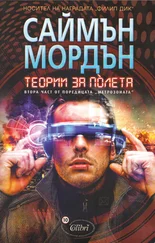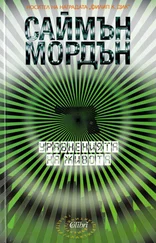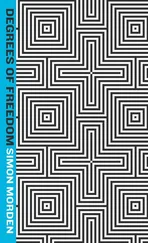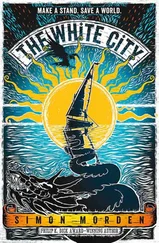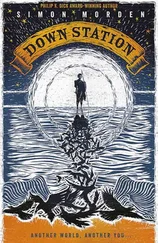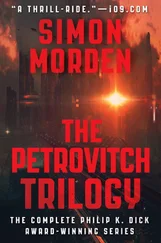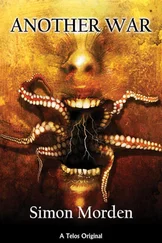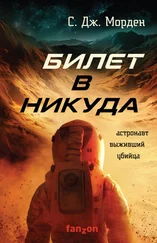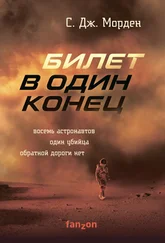“Yeah.” That would explain the sheets and the metal-framed bed.
“There’s a problem. They have no live hearts left. When they lost power, they rotted. We’ve talked to a surgeon, who, after a little persuasion, will fit you with a plastic one.”
“That’s fine.” And that would explain the drawn weapons.
“Except they all got looted. We’re going to try and find you a new heart, Sam. We’ll do our very best for you.” Her face screwed up. She was trying not to cry. “Hang on.”
“Fresh out of promises,” whispered Petrovitch. There was a mask over his nose and mouth. It smelled strange, and he tried to dislodge it. He’d forgotten his left hand was missing a finger.
“He’ll tidy that up too, and your ear. Pin your collar bone if you need it.” Madeleine moved the soft mask out of the way. “Sam, we need to start searching now.”
“Heart,” he said. “I know where there’s one.”
She leaned closer, her braid coiling next to his head. “Go on.”
“Waldorf Hilton. Room seven-oh-eight. It was in a case on the bed. Sterile and ready to implant.” He was exhausted already. “One of Sorenson’s commercial samples.”
“Right.” She stood up and pointed to the door. “Chain, we’re going to the Waldorf Hilton.”
“What for? It’s right on the Embankment. It’ll be under water.”
“I don’t care: we’re going. Sonja? Stay here and threaten anyone who tries to disconnect him. And,” she said, “I am not sharing him with you or with anyone. Are we clear on that?”
Sonja’s reply was slow in coming. “You’ve made yourself perfectly clear,” she said. She rested the katana point down and claimed the room’s only chair.
Chain was at the door, patting his pockets. “If you’re ready, Sister?”
“Not quite.” She kissed Petrovitch full on the lips, stealing what remained of his breath away. “There. Now I’m ready.”
She tried to pull away. Petrovitch had hold of her arm, and he persuaded her back down.
“Did we win?”
“We won. You won. No more New Machine Jihad. You’ll have to tell me about it, but later.” She broke away and ran to the door. Chain was holding it open for her. Then she ran back. “Almost forgot.”
She unsealed the side-seam of her armor and pulled out the envelope Petrovitch had given into her safe keeping. It was crumpled, and damp with her sweat.
“You’ll need this,” she said. She tucked it under his hand, and his fingers tightened over it.
Then she was gone, the door swinging shut.
Sonja looked at Petrovitch. She reached over and slid the mask back over his mouth.
“Did you…?” she asked.
Petrovitch’s nod was all but imperceptible, but she caught it all the same.
“Thank you,” she said. She leaned back against the chair, rested her sword across her knees, and settled down to wait.
A story: once upon a time, way back when, I was just finding my feet in the publishing world. I didn’t really know what was going on, or how to do it—write, for sure, but how to write better, how to edit, how to find markets for finished stories, how to write a covering letter—but I was fortunate to find a number of people who held my hand gently and guided me through the maze with encouragement, good advice and honest opinions.
One of these was an American writer and editor called Brian Hopkins. Brian had his own e-publishing outfit long before the Kindle was a twinkle in Amazon’s eye, and he was putting together an anthology of fantasy and horror short stories “from the ends of the Earth.” I could do that, I thought in my naivety: he was in the USA, I was in Britain, and I could set something just down the road and make it look exotic. So I wrote something, sent it off, had it rejected with kind words. Rinse and repeat. But finally, I wore him down. He accepted one of my stories.
The first anthology eventually stretched to a series of five. I ended up in all of them. Then I pitched something different—a collection of linked stories, twenty in all, about the lives of people caught up in a wave of religiously inspired nuclear terrorism that would sweep across Europe and leave chaos in its wake. That collection has become, eight years later on, the world of Equations of Life and the books that follow. They are stories that probably wouldn’t have happened otherwise.
So this one’s for Brian. Thank you.
extras

DR. SIMON MORDEN is a bona fide rocket scientist, having degrees in geology and planetary geophysics, and is one of the few people who can truthfully claim to have held a chunk of Mars in his hands. He has served as editor of the BSFA’s Focus magazine, been a judge for the Arthur C. Clarke Award and was part of the winning team for the 2009 Rolls Royce Science prize. Simon Morden lives in Gateshead with a fierce lawyer, two unruly children and a couple of miniature panthers. Find out more about the author at www.bookofmorden.co.uk.
Doctor Morden, I presume?
Guilty as charged. I got my PhD in planetary geophysics at the tender age of 24—unfortunately I’d managed to specialize myself into a corner and when the grant money ran out, I had to take on a series of bizarre jobs beloved of authors for their biographies. Then I became a full-time househusband looking after my kids. I now teach part-time at a local primary school, where I’m responsible for building hovercraft, airplanes, bomb shelters and gravity cars. There might be some blowing stuff up, too.
So you became a science fiction writer because you’re a scientist?
It’s almost the other way around: reading SF lead me to become a scientist. I was a horribly precocious child who started on adult books at a young age—I was just let loose in the library and told to get on with it, which led me to read some gloriously age-inappropriate novels. But one of the first I picked up was a James White Sector General story: that put me on the right path for the next thirty years or so. I devoured Clarke and Azimov, read every Niven and Bradbury story I could lay my hands on. That sort of thing is like dynamite to a kid’s brain.
I don’t think it occurred to me that I could be a writer until quite late on: seventeen or so. Yes, I made up stuff—a very rich interior life, as the psychologists would say—and it was all genre, but it was more directed toward role playing games. I discovered Dungeons and Dragons through my interest in wargaming, and I was hooked instantly: I could be in stories like the ones I read. I started designing my own scenarios; adding in history, geography, ecology, and ending up with some serious world building. But that’s Morden’s First Law of writing: nothing is ever wasted.
I finished my first novel at the same time as my thesis—fantasy, because it was different to my studies, and what I was used to GMing—fortunately the thesis was more impressive. That novel is in a drawer slowly turning into coal, but I had caught the bug: I wrote another book, SF this time (also unpublished and unpublishable), and just kept on going. I finally sold a short story in 1998, eight years after that first novel. I don’t know whether you’d call it persistence or sheer bloody-mindedness. But it was a good apprenticeship, all the same.
There’s a very rich back-story to Equations of Life.
Yes. Yes, there is, and it has a story all of its own to go with it. Some of this is in the dedication, but here’s the rest of it.
Читать дальше
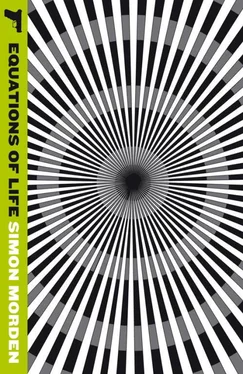

![Саймон Морден - Билет в никуда [litres]](/books/388091/sajmon-morden-bilet-v-nikuda-litres-thumb.webp)
![Саймон Морден - Билет в один конец [litres]](/books/395533/sajmon-morden-bilet-v-odin-konec-litres-thumb.webp)

